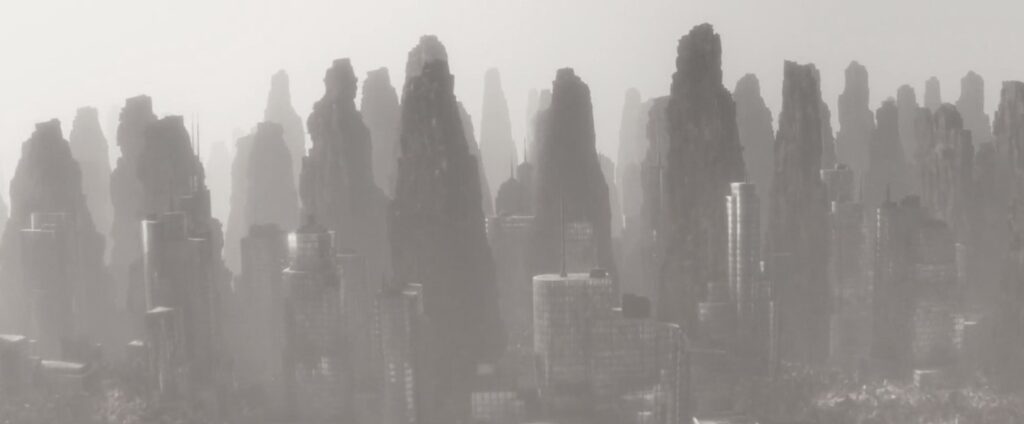Micro-Essay by Georgia Hoyer
“When we contemplate ruins, Christopher Woodward writes, we contemplate our own future.”
(Canavan, p. 11)
Benjamin Bratton’s “Planetary Sapience” and Gerry Canavan’s “If This Goes On” intersect in their exploration of humanity’s precarious relationship with the planet, emphasizing the power of imagination and speculative thinking to confront ecological and technological crises. Both authors argue that to navigate these challenges, we must rethink humanity’s role on Earth, whether it be highlighting science fiction as a critical tool for envisioning alternative futures and critiquing present-day society or thinking of planetary scale computation as a means of growth.

Canavan illustrates how science fiction, through examples like Wall-E and Soylent Green, provides cautionary tales and glimpses of redemption. These narratives expose the dangers of unchecked consumerism and environmental exploitation, while also offering hope for ecological renewal, as seen in Wall-E’s restorative ending. These stories compel readers to reflect on society’s trajectory, imagining futures shaped by cooperation and accountability. Similarly, Bratton’s framework of planetary sapience—an emergent intelligence blending human and machine—reflects speculative ideas that feel at home in science fiction. His concept of synthetic intelligence recalls the genre’s vision of collaboration between humans and technology to overcome existential threats.

Both authors emphasize the necessity of systemic transformation. Bratton’s call for deliberate “terraforming” of Earth echoes science fiction’s bold reimagining of planetary stewardship, while Canavan shows how stories of ecological disaster can prompt introspection and inspire action. Science fiction, as Canavan demonstrates, serves as a means of critiquing societal norms while fostering imaginative solutions. In this way, Bratton’s speculative ideas align with the vision that science fiction cultivates, underscoring the genre’s relevance to rethinking humanity’s place in the Anthropocene.
Key Terms:
MODERN: Progression based
on idealism and endlessness in
resources; holds positivity towards
future.
POST-MODERN: A world progressed
with the realization of all of its limits;
holds a pessimism towards the future.
*Benjamon Bratton, Planetary Sapience Technology & The Human, 2021
*Gerry Canavan, If Those Goes On Green Planets: Ecology and Science Fiction, 2014

